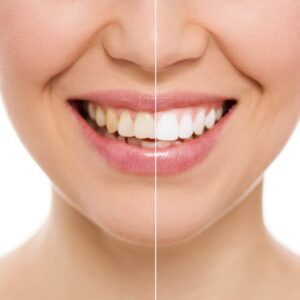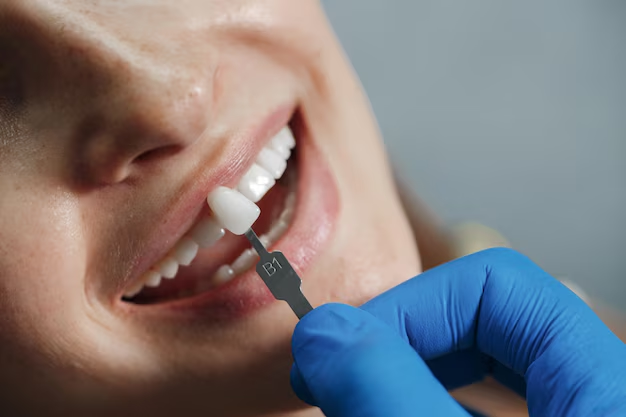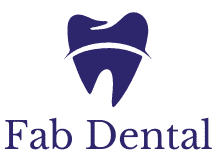
Health-conscious individuals are always on the lookout for ways to maintain their well-being without straining their wallets. One often-overlooked area is dental care. Did you know that your Flexible Spending Account (FSA) and Health Savings Account (HSA) can be invaluable tools for covering dental expenses? In this blog post, we’ll explore how you can use these accounts to ensure optimal dental health while enjoying significant tax advantages.
Understanding FSA and HSA for Dental Care
What Are FSA and HSA?
FSA (Flexible Spending Account) and HSA (Health Savings Account) are financial accounts that allow you to set aside pre-tax dollars for eligible healthcare expenses, including dental treatments.
- FSA (Flexible Spending Account): Typically offered by employers, FSAs allow you to contribute a portion of your earnings to cover medical expenses. The key catch is that FSA funds usually need to be used within the plan year, or you risk losing them.
- HSA (Health Savings Account): HSAs are available to individuals enrolled in high-deductible health plans (HDHPs). The funds contributed to an HSA roll over year to year, offering more flexibility in managing healthcare expenses.
Eligibility Criteria and Contribution Limits
Eligibility for these accounts depends on your employment and insurance status:
- FSA: Available through employer-sponsored plans.
- HSA: Available to individuals with HDHPs.
For 2023, the contribution limits are:
- FSA: $2,850 per year.
- HSA: $3,650 for individuals and $7,300 for families.
How Can They Be Used for Dental Care?
Both FSAs and HSAs can cover a wide array of dental services:
- Routine check-ups and cleanings
- Fillings, crowns, and root canals
- Dentures and dental implants
- Orthodontic treatments, including braces and aligners
The Flexibility and Tax Advantages
Using FSA and HSA funds for dental care not only helps manage your expenses but also provides significant tax benefits. Since contributions are made with pre-tax dollars, you effectively reduce your taxable income, leading to substantial savings.
Example:
Suppose you earn $50,000 annually and decide to contribute $2,000 to your HSA. Your taxable income would be reduced to $48,000, resulting in lower tax liability. This means more money in your pocket to cover dental and other healthcare expenses.
Flexibility in Covering Costs
One of the greatest benefits of FSAs and HSAs is their flexibility. Whether you’re dealing with routine check-ups or unexpected dental emergencies, these accounts can help alleviate financial stress.
Planning Ahead for Dental Expenses
Strategic planning is crucial for maximizing the benefits of your FSA or HSA. Here are some tips:
- Budget Wisely: Estimate your annual dental expenses, including routine check-ups and potential treatments, to determine how much to contribute to your FSA or HSA.
- Schedule Regular Check-Ups: Ensure that you allocate enough funds to cover biannual cleanings and exams, which can help prevent more costly issues down the line.
- Plan for Major Procedures: If you anticipate needing major dental work, consider increasing your contributions to cover these costs.
“Using FSA and HSA funds for dental care is a smart way to manage your healthcare budget. Patients who plan ahead not only take better care of their teeth but also make the most of their financial resources.” — Dr. Guneet Alag, DDS, FAGD
Lesser-Known Benefits and Eligible Products
Beyond standard dental treatments, FSAs and HSAs can also cover:
- Orthodontic Treatments: Braces, clear aligners, and retainers
- Dental Implants: A permanent solution for missing teeth
- Over-the-Counter Products: Dental care products like fluoride rinses, orthodontic wax, and pain relief medication
Timeline for Refreshing FSA and HSA Plans
Understanding the timeline for your FSA or HSA is crucial:
- FSA: Generally, you must use the funds by the end of the plan year or risk losing them. Some plans offer a grace period of up to 2.5 months or allow you to carry over up to $550 to the next year.
- HSA: Funds roll over year to year, so there’s no rush to spend them within a specific timeframe.
Conclusion
FSA and HSA accounts provide an excellent opportunity to manage dental expenses efficiently while enjoying tax benefits. By understanding how to use these accounts and planning ahead, you can ensure a healthier smile without breaking the bank.
Ready to take control of your dental health and financial well-being? Start planning your FSA or HSA contributions today!
FAQs
Can I use FSA/HSA funds for cosmetic dental procedures?
Cosmetic procedures, such as teeth whitening, are generally not eligible for FSA/HSA reimbursement. However, medically necessary treatments, even if they have cosmetic benefits, are covered.
What happens to unused FSA funds at the end of the year?
Unused FSA funds typically expire at the end of the plan year unless your plan offers a grace period or allows a limited carryover.
Can I use HSA funds for my family’s dental expenses?
Yes, HSA funds can be used to cover eligible dental expenses for you, your spouse, and any dependents.
Are dental insurance premiums covered by FSA/HSA?
No, FSA and HSA funds cannot be used to pay for dental insurance premiums.
How do I reimburse myself for dental expenses using my HSA?
Most HSA providers offer a simple reimbursement process, either online or via a mobile app. Just keep your receipts and follow your provider’s instructions.







